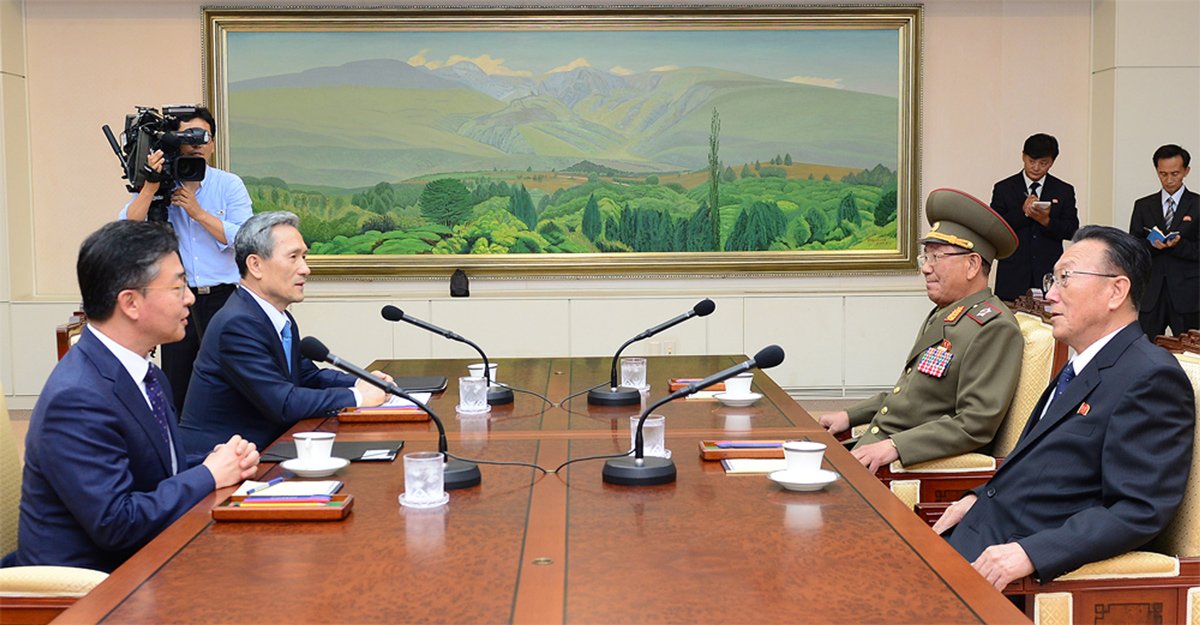North Korea and South Korea will hold a second day of top-level talks amid growing tension, South Korean officials say.
The announcement was made after several hours of negotiations on August 22.
Senior aides to North Korean leader Kim Jong-un and South Korea’s President Park Geun-hye met at the Panmunjom truce village on the border.
North Korea had threatened “strong military action” if South Korea did not stop border loudspeaker broadcasts that had provoked a “semi-state of war”.
The two sides have agreed to meet again on August 23 to “narrow down differences” as overnight talks were finally wound up after nearly 10 hours of negotiations.
No media organizations were present at the talks, which took place inside the Demilitarized Zone which divides the two Koreas.
South Korea said ahead of the talks that it would be represented by national security adviser Kim Kwan-jin and Unification Minister Hong Yong-pyo, and North Korea would send senior officials Hwang Pyong-so and Kim Yong-gon.
Hwang Pyong-so is seen by many analysts as North Korean leader Kim Jong-un’s second-in-command.

North Korea had earlier issued a deadline for the dismantling of banks of loudspeakers, which have been blasting news bulletins, weather forecasts and music from the South. It had moved artillery into positions to fire on them.
South Korea has evacuated almost 4,000 residents from border areas and warned that it would “retaliate harshly”.
American and South Korean fighter jets have been flying in formation near the border.
The US’s top military officer has reaffirmed his country’s “unwavering commitment” to South Korea’s defense in a phone call to his South Korean counterpart.
Chairman of the Joint Chiefs of Staff Gen Martin Dempsey and South Korea’s Admiral Choi Yoon-hee agreed they would “ensure that the US and [South Korea] continue to work closely with one another to deter further North Korean provocations and defuse tensions,” a Pentagon statement said.
North Korea and South Korea remain technically at war, because the 1950-1953 conflict ended in an armistice, not a peace treaty.
In 2004, the two Koreas reached an agreement to dismantle their propaganda loudspeakers at the border.
The broadcasts were part of a program of psychological warfare, according to South Korean newspaper Korea Times, to deliver outside news so that North Korean soldiers and border-area residents could hear it.
https://www.youtube.com/watch?v=lh2eN4gxTOg
